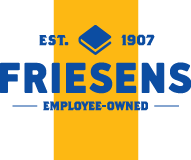August 19, 2020
The Importance of Literacy
How would you define literacy? Most people would say that it is the ability to read and write ….and that would be true according to a simple dictionary definition. But literacy is more about the substance behind learning the alphabet and forming sentences. It is a powerful tool, and when used effectively, it enables us to connect, interpret and discern the intricacies of the world around us. According to the Government of Canada and Ministry of Education, their definition states:
“Literacy is … the ability to use language and images in rich and varied forms to read, write, listen, speak, view, represent, discuss, and think critically about ideas. Literacy enables us to share information and to interact with others. Literacy is an essential tool for personal growth and active participation as a contributing member of society. Literacy involves the capacity to:
• access, manage, create, and evaluate information
• think imaginatively and analytically
• communicate thoughts and ideas effectively
• apply metacognitive knowledge and skills (in other words, being self-aware of one’s own thought processes)
• develop a sense of self-efficacy and an interest in life-long learning.
The development of literacy is a complex process that involves building on prior knowledge, culture, and experiences in order to instill new knowledge and deepen understanding”
Today, many children are classified as ‘digital natives’ – which means they are comfortable online as well as offline. Although the internet enables endless educational possibilities, the overwhelming array of content can be a hindrance to those children who cannot effectively sift through and interpret the material presented. Strong literacy skills are essential, so that children can discern and interpret information in the best possible way. Parents and educators can encourage literacy development by:
• Sharing knowledge and explaining how to use literacy in everyday life
• Encouraging a child to read and view a variety of texts such as newspapers, novels, comics, magazines, websites, email and timetables
• Encouraging a child to write and design for a variety of purposes using different mediums
• Discussing how texts look different depending on the purpose and audience — for example, text messaging uses different spelling from school projects
• Talking about reading material that is amusing, interesting or useful
• Discussing favourite authors, producers, directors or illustrators and why they are favourites.
• Discussing new and unusual words or phrases and exploring these through print and electronic dictionaries
• Playing games that develop knowledge and enjoyment of words
• Making use of community resources for information such as local and school libraries

Friesens has always been a strong advocate in promoting the benefits of literacy and ensuring that we use every opportunity to instill the love of books and love of reading to every child. In keeping with these values, Friesens has been in partnership with First Book Canada, and The Canadian Children’s Book Center for a campaign that provided 130,000 books to children in need. The Canadian Children’s Book Centre donated the books, and Friesens covered the freight and logistics to get them to their destination.
One of the greatest gifts we can give our children, is the ability to read and form a love for the written word helping them to increase their knowledge and understanding of the world around them.
So, before you dismiss literacy as a rudimentary form of communication such as learning the ABC’s of “reading and writing”, think about the bigger picture – one that involves an interchange of ideas on a global scale, enabling us to connect as a community in an ever-changing world through constant education and discovery.







